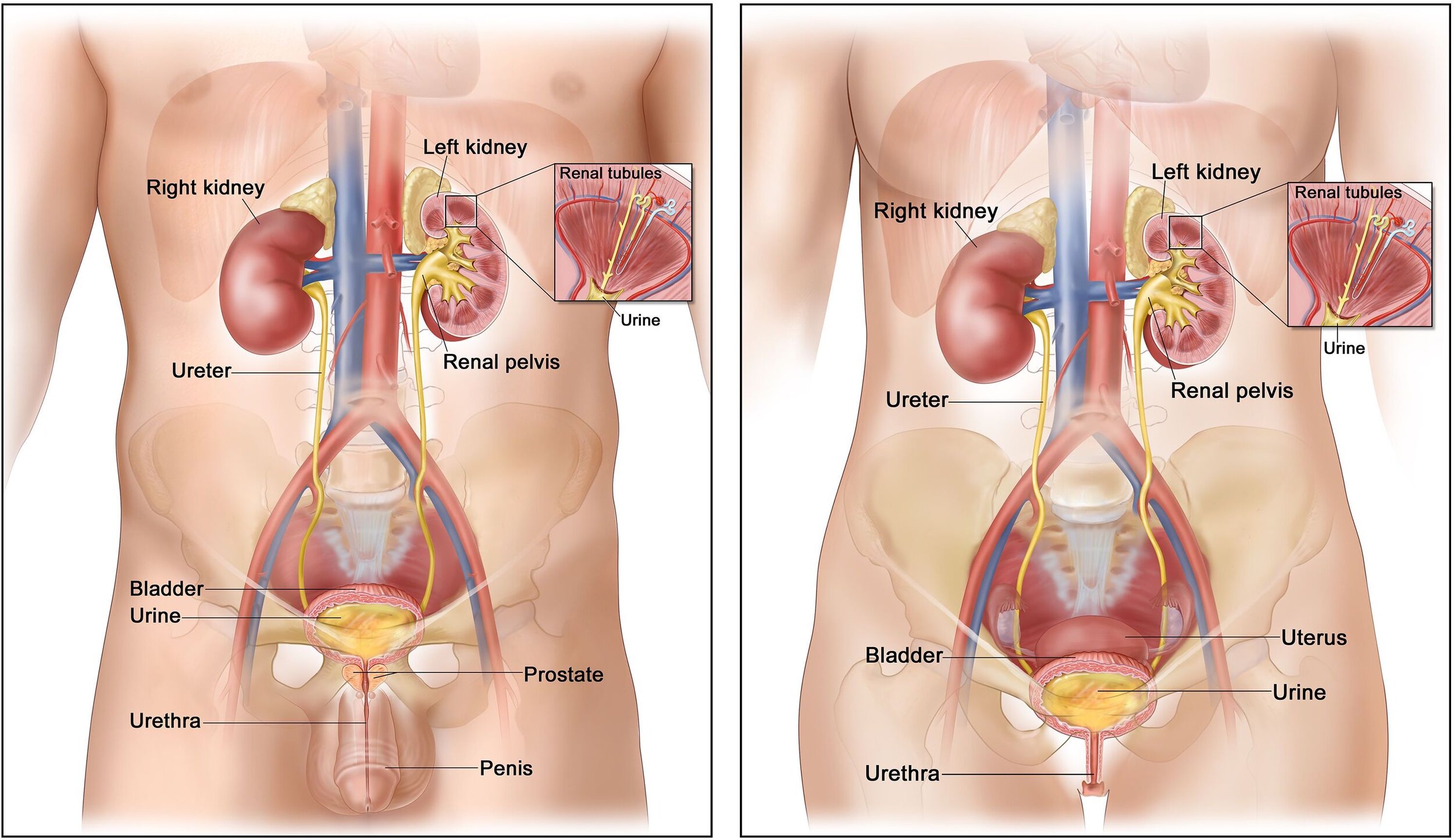Bladder Cancer
Bladder cancer occurs more commonly in men than women and usually affects older adults. Cigarette smoking and exposure to industrial chemicals and toxins have been linked to bladder cancer. Bladder cancer begins with growth of abnormal cells in the inner lining of the bladder. Although it's most common in the bladder, this same type of cancer can occur in any part of the urinary tract. About 70% of bladder cancers diagnosed start out at an early stage. At this stage, bladder cancer is highly treatable. However, even early stage bladder cancer can recur and people with bladder cancer typically need follow-up tests for years after treatment to check for recurrence of bladder cancer.
Symptoms
If you see blood or blood clots in your urine, see a doctor immediately to work out the cause.
Other symptoms include:
Having the urge to urinate even when the bladder is not full
Increased frequency of urination
Painful or burning sensation when urinating
Weak urinary stream or difficulty urinating
Tests
Tests to rule out bladder cancer include:
Urine cytology. This urine tests looks for cancer cells in the urine.
CT or MRI scans. These scans will look at the abdomen and pelvis in more detail.
Cystoscopy. The most important test is to physically look inside the bladder using a small camera. This can be done under local or general anaesthesia. Depending on the type of cystoscopy, any abnormal tissue can be biopsied and treated at the same time.
Stages of Bladder Cancer
There are a number of stages in the development of bladder cancer. The more information we have about the stage of the bladder cancer, the better we are able to choose the best treatment options.
Stage 0: The cancer is in the cells of the inner lining of the bladder but not the connective tissue.
Stage I: The cancer is in the inner connective tissue lining of the bladder, but not in the muscle of the bladder wall.
Stage II: The cancer has grown into the muscle layer of the bladder.
Stage III: The cancer is in the layer of fatty tissue that surrounds the bladder or the nearby lymph node(s) or the adjacent reproductive organs.
Stage IV: This may include any of the following:
The cancer has spread from into your pelvic or abdominal wall.
The cancer has spread to lymph nodes above the common iliac artery.
The cancer is in distant sites like the bones, liver and lungs
Treatment
There are multiple treatments for bladder cancer depending on the stage of your bladder cancer, your personal preferences and your overall health. Bladder cancer treatment often requires a multi-disciplinary team. We will provide the urological expertise for your cancer care and we will consult with our colleagues including medical oncology, radiation oncology, and radiology to tailor the best treatment plan for your specific needs. Treatments for bladder cancer include:
Surgery.
Transurethral resection of bladder tumour. This technique uses a small camera to remove any abnormal tissue within the bladder. This procedure can both diagnose and treat bladder cancer.
Radical cystectomy. This is a procedure to remove the bladder and is the recommended treatment for cancer that is the muscle layer of the bladder. The procedure can be done in robotic or open fashion.
Chemotherapy.
Radiation therapy.
Immunotherapy.
Contact
At Adelaide Urology Care, we are committed to giving you the personalised care you need. Please do not hesitate to contact us for more information.
Male and Female Urological Anatomy
Bladder Ultrasound
Online Enquiry Form
Stage I Bladder Cancer
More Information
Reliable and up-to-date health information is important for understanding and managing your health. A list of trustworthy and reputable medical websites is provided below. Please click on the links for further useful information on Bladder Cancer.



